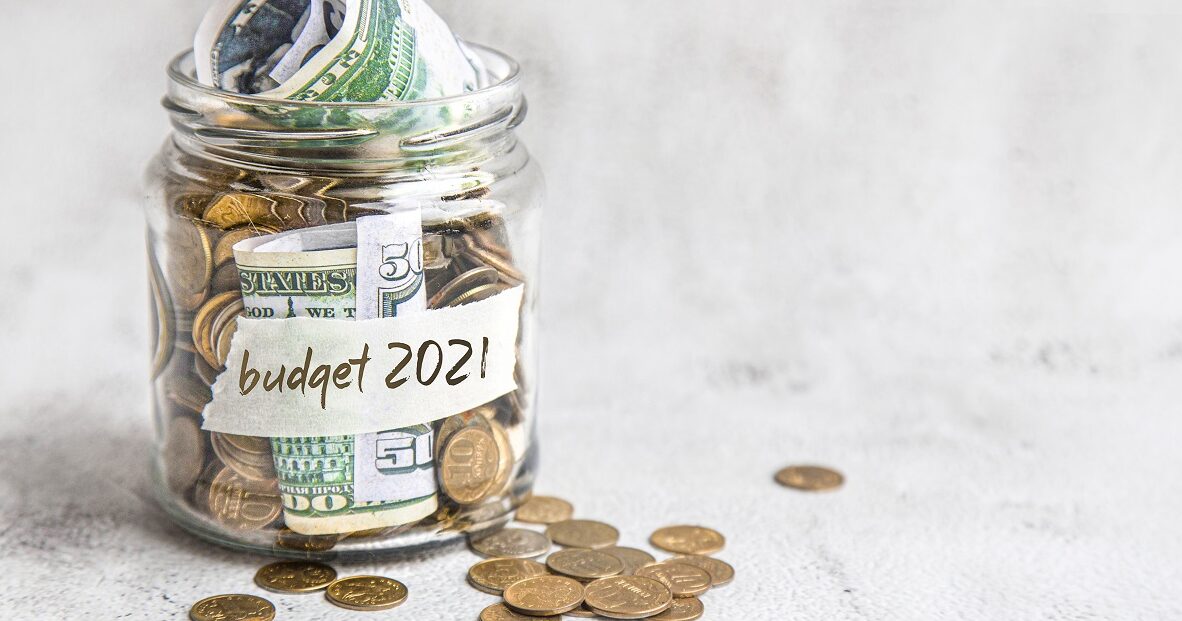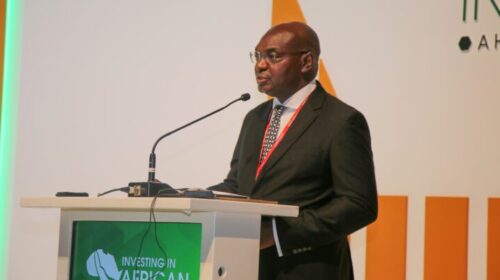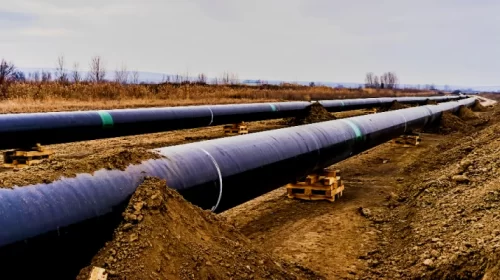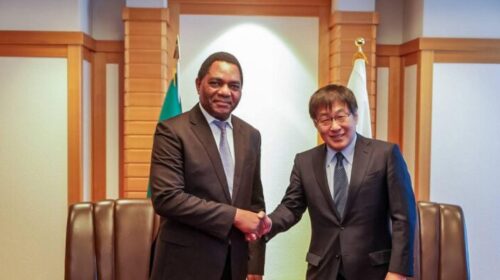Pre-Budget analysis: Making economic recovery a reality
In his recently delivered speech at the official opening of Parliament, H.E. President Edgar Lungu stated that pursuing an economic recovery is the priority of his Government. There is therefore more anticipation than ever ahead of the 2021 National Budget, which Finance Minister Hon. Bwalya Ng’andu is expected to deliver on 25 September. Mining For Zambia spoke to Former President of the Economics Association of Zambia and founder of Betternow Finance Company, Noel Nkoma, about the policies he believes should be implemented to achieve this recovery, and what he hopes to see in the Budget announcement.
On 11 September, at the official opening of Parliament, H.E. President Edgar Lungu, said: “Pursuing economic recovery for the Zambia we want is the number one goal of my Government”. What are the key policies that you would like to see implemented to achieve this recovery?
If we are to navigate a way out of this, first of all we should have a post-mortem in terms of how we got to where we are. To me, to a great extent, it’s through mismanagement of the economy. This was a thriving economy with a prosperous citizenry. For the first time, we built a middle class, which has now been more or less depleted. Now, what do we do to get out of this?
I think as a country — and more so, as policymakers — we are denying that we need an IMF programme. An IMF programme is not a panacea, but I think it will introduce discipline in terms of how we manage our resources, and bring some credibility to the Government, which is lacking. It will also restore the confidence of domestic investors and foreign investors.
We may be hoping that, if we’re able to get back on an IMF programme, things will begin to fall into place. But I think, most importantly, the economy has lacked diversification for many years. The contribution of the mining sector to the Zambian economy [10.7% of GDP in 2018, more than three quarters of export earnings, and 31.4% of Government’s revenue collections] has basically been a lifeline. But we have ignored one sector which presents enormous potential: that is agriculture.
We have mismanaged agriculture to the point that support to smallholder farmers over the years has been reducing at such a fast rate that even the bumper harvest recorded the previous two years is threatened by this year’s harvest. Zambia is positioned to be the breadbasket of this region. With all this potential, we should have done better in terms of reinvesting in agriculture, supporting smallholder farmers, and beginning to scale up. [Along with mining], this is another area where I think, if I were the President, there should be a major focus.
Do you think there is potential for a post-COVID mining-led economic recovery in the short to medium term and, if so, what would it take?
The mining sector plays a critical role in the Zambian economy. To me, moving forward with a post-COVID economic recovery would be anchored not only in the mining sector, but a combination of the mining, tourism and agricultural sectors, which are all key. The three basically account for around 70-80% of employment in Zambia.
We seem to have a problem with creating a properly defined and consistent policy around mining. The damage that has been done to mining in the last 10 years as a result of an inconsistent policy framework is what we are now beginning to bear [the brunt of]. Had we managed the mining fiscus well, we would not have had a situation where the Kwacha is depreciating at the rate it has been this year. This tells you that the core anchor of Zambia’s economy has been disturbed. Confidence has evaporated to the point that we are now fire-fighting, so to speak. If we had a very predictable and user-friendly mining regime, we would not only have benefited from what is happening on the commodity side (in terms of the copper price rising to over $6,000/mt again) but, by now, we would have been able to build a sinking fund for times of difficulty, like we are experiencing now.
“The mining sector plays a critical role in the Zambian economy. To me, moving forward with a post-COVID economic recovery would be anchored not only in the mining sector, but a combination of the mining, tourism and agricultural sectors.”
If you look at the budget framed by the former Minister of Finance about four years ago or so — at the point when we realised we may have challenges in liquidating the first $750 million Eurobond, which is maturing in 2022 — the Government approved the establishment of a sinking fund. Dollar-denominated tax revenues from the mines were supposed to be channelled to the sinking fund, to build up over time. To date, that has not happened. This is related to the disturbances we’re experiencing in the mines now, where Glencore and others are now more or less saying they have had enough and would like to exit. We have also had problems with Vedanta at Konkola Copper Mines (KCM). The sector itself is not in good shape. Even the benefits in terms of foreign exchange inflows have been impacted, and that is why you are seeing the exchange rate spiking time and again.
Those are the areas that I would love to see addressed in such a manner that it gives confidence to the executors of the country’s monetary policy, and also signals to foreign investors and the current investors in the mining sector that we are now ready to revisit the policies around the mining regime. This would speak to a strong bond of partnership with the mining houses.
Lastly, I’d also love it if the President revisited the tax regime. I think one of the bones of contention between Government and the mining houses has been an inconsistent tax policy. We have gone back and forth on VAT, and so on and so forth. The debate has died down on sales tax now, but I think the SONA [State of the Nation Address] was an opportunity for the President to pronounce a Government policy around the mining tax regime; to me — because we are talking about economic recovery — that was a missed opportunity. If the policy framework doesn’t support a growth-driven mining sector, then it becomes impossible to actualise what you intend to achieve. To me, I think everything should be driven by a predictable, investor-friendly policy regime.
What should the policy regime consist of?
I think number one is respect for private property. The case of KCM, where a dispute has gone to court and to arbitration is one example of the importance of a clear understanding and appreciation from both Government and the investor that private property rights will be respected and protected; that, to me, is key. Number two: Government must be open to dialogue. The economy is always evolving; we need policies that are reflective of what is currently unfolding, not only in the domestic economy but also the global economy. We ought to have a flexible policy regime which allows for constant dialogue between Government, investors and other key stakeholders, and which is anchored in mutual respect and understanding, with a user-friendly policy framework and tax regime.
Is dealing with the sovereign debt burden a prerequisite to an economic recovery?
Yes. Zambia’s exchange rate deterioration is as a consequence of debt servicing — and, not only that, debt which they are continuing to accumulate. To me, if almost 60% of your foreign exchange earnings are going towards debt servicing (and right now we are depleting our reserves — I think we only have import cover for about one and a half months) to me, that is a major threat and a risk to the stability of the Zambian economy. Until we address this threat, all our efforts — no matter what we do — will be in vain.
How can Zambia deal with its debt burden?
Some efforts have recently been made: we have engaged the financial advisor Lazard Freres to deal with the debt side of things. But I think it’s also important that the Government begins to prioritise a home-grown economic programme which carries the masses with it. I proposed, not too long ago, that the President call for an ‘economic indaba’, where all key stakeholders in the financial sector, the mining sector, and the agricultural sector come together under one roof and come up with ideas which will translate into an economic Marshall Plan.
“We ought to have a flexible policy regime which allows for constant dialogue between Government, investors and other key stakeholders, and which is anchored in mutual respect and understanding, with a user-friendly policy framework and tax regime.”
The problem we have is that Zambia’s politicians believe the solutions to the economic challenges that we are facing now lie only within the Cabinet or the ruling party. I’m saying ‘No’: the solutions are beyond these two structures.
So, how do we deal with the debt issue? One: get an IMF programme which will be able to help us, beyond renegotiating or restructuring or refinancing the debt. If Lazard goes out in the market to restructure the debt or explore refinancing, who out there will listen to them without the endorsement of the IMF? With an IMF programme comes credibility. We have to put things into context and ask: if we are to achieve this, what are the building blocks that we need to put into place before we can reach point X? One of them is an IMF endorsement.
What are your views on the two-phased policy approach that has been widely proposed by International Financial Institutions, namely protecting lives and livelihoods today and laying the pro-growth policy foundations for a strong economy tomorrow?
I totally subscribe to that approach for the simple reason that we need human capital to drive economic growth going forward, post-COVID-19. We may have to make decisions which might compromise our good intentions to protect lives — namely, to open up the economy so that it does not totally collapse. We cannot afford at this moment in time to let the economy go off the rails. We must also take actions that speak to some kind of growth trajectory. The balance is difficult, but we have to appreciate the circumstances that we find ourselves in.
There is global consensus that protecting a country’s key industries is critical for an economy’s post-COVID survival. Should Government prioritise the protection of Zambia’s mining sector to facilitate a mining-led recovery?
We need to build a strong bond of partnership between Government and the mining houses, which is anchored on trust, transparency and also mutual benefit. To qualify this: Government says they want to buy off First Quantum and Glencore’s stake in Mopani but I still hold the view — and strongly so — that Government has got no business in business. It should be left to private capital to explore these opportunities. Government’s expectation should only be to receive what it is due in taxes, royalties, and so forth.
If we believe that, as a country, we need a very strong mining industry post-COVID, then we should insist that private capital is the best partner to run the mining sector. Our Government’s responsibility should be to create an environment that allows private capital to be invested to run profitable enterprises.
Let us have a very strong, predictable mining policy framework which does not change at the whim of one state actor, but is driven by consensus and mutual understanding — with the caveats put in place that there will be no surprises going forward.
![]()





